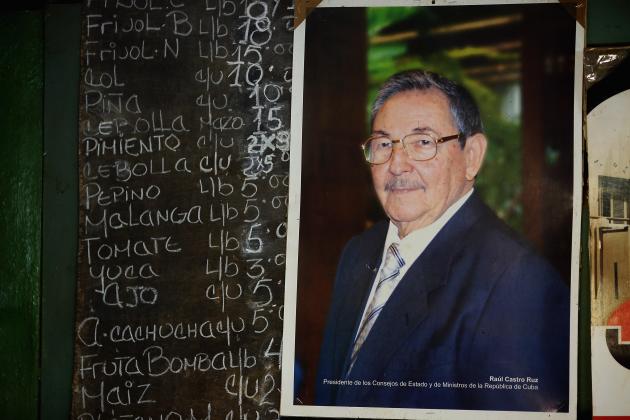1/26/2015
By Michael Weissenstein And Anne-Marie Garcia
source
By Michael Weissenstein And Anne-Marie Garcia
HAVANA - The start of talks on repairing 50 years of broken relations appears to have left President Raul Castro's government focused on winning additional concessions without giving in to U.S. demands for greater freedoms, despite the seeming benefits that warmer ties could have for the country's struggling economy.
Following the highest-level open talks in three decades between the two nations, Cuban officials remained firm in rejecting significant reforms pushed by the United States as part of President Barack Obama's surprise move to re-establish ties and rebuild economic relations with the Communist-led country.
"One can't think that in order to improve and normalize relations with the U.S., Cuba has to give up the principles it believes in," Cuba's top diplomat for U.S. affairs, Josefina Vidal, told The Associated Press after the end of the talks. "Changes in Cuba aren't negotiable."
It's not clear if Cuba's tough stance is part of normal negotiation tactics or a hardened position that could prevent the talks from moving forward.
The Obama administration has dedicated significant political capital to rapprochement, but closer ties with the economic giant to the north also could have major importance for Cuba, which saw growth slow sharply in 2014 and is watching with concern as falling oil prices slam Venezuela, which has been a vital source of economic support.
In a wide-ranging interview, Vidal said that before deciding whether to allow greater economic ties with the U.S., Cuba was seeking more answers about Obama's dramatic of loosening the half-century trade embargo.
Measures put into effect this month range from permitting large-scale sales of telecommunications equipment to allowing U.S. banks to open accounts in Cuba, but Vidal said officials on the island want to know if Cuba can buy such gear on credit and whether it is now free to use dollars for transactions around the world, not just those newly permitted with U.S. institutions. Until now, at least, U.S. law and policy has banned most foreign dealings with Cuba.
"I could make an endless list of questions and this is going to require a series of clarifications in order to really know where we are and what possibilities are going to open up," Vidal said.
Obama also launched a review of Cuba's inclusion on the U.S. list of state sponsors of terrorism and Vidal said "it will be difficult to conceive of the reestablishment of relations" while Cuba remains on that list, which imposes financial and other restrictions.
Vidal also said full normalization will be impossible until Congress lifts the many elements of the trade embargo that aren't affected by Obama's executive action — a step seen as unlikely with a Republican-dominated Congress. Among key prohibitions that remain is a ban on routine tourism to Cuba.
Even a relatively simple measure such as granting U.S. diplomats freedom of movement around Cuba, she said, is tied to reduced U.S. support of dissidents, whom Cuba says are breaking the law by acting to undermine the government of behalf of U.S. interests.
"It's associated with a change in behaviour in the diplomatic missions as such and of the diplomatic officials, who must conduct themselves as our officials in Washington do, with total respect for the laws of that country," Vidal said.
She also said Cuba has not softened its refusal to turn over U.S. fugitives granted asylum in Cuba. The warming of relations has spawned new demands in the U.S. for the State Department to seek the return of fugitives including Joanne Chesimard, a Black Liberation Army member now known as Assata Shakur, who fled to Cuba after she was convicted in 1977 of killing a New Jersey state trooper.
Vidal said the two nations' extradition treaty "had a very clear clause saying that the agreement didn't apply to people who could be tied to crimes of a political nature."
But the opening already has led to some changes, at least in the short-term: Cuba significantly relaxed its near-total control of public information during the talks in Havana, allowing the live broadcast of news conferences in which foreign reporters questioned Vidal about sensitive topics including human rights. Cuban television even broadcast part of a news conference with Vidal's counterpart, Roberta Jacobson, to foreign reporters, state media and independent Cuban reporters who are considered members of the opposition.
Cubans said they were taken aback by the flow of information but wanted to know much more about what the new relationship with the U.S. means.
"We've seen so much, really so much more than what we're used to, about very sensitive topics in our country," said Diego Ferrer, a 68-year-old retired state worker.
Jesus Rivero, also 68 and retired from government work, sat on a park bench in Old Havana reading a report in the official Communist Party newspaper, Granma, about Jacobson's press conference.
"It's good that Granma reports the press conference in the residence of the head of the Interests Section," Rivero said. "But I think they should explain much more so that the whole population really understands what's going on."
source

No comments:
Post a Comment